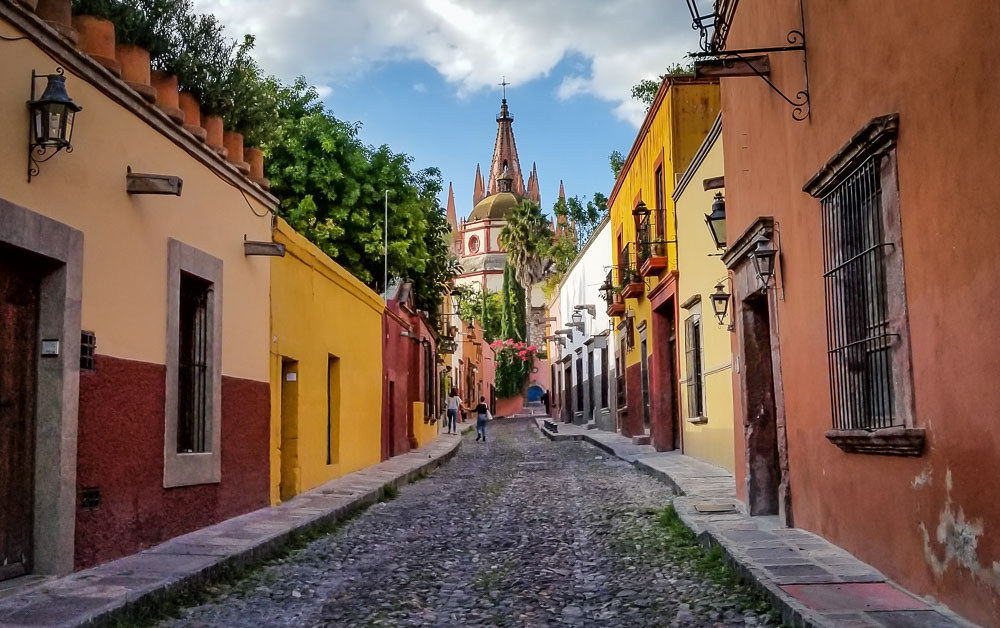Episode 062 - What exactly is an asset?
This question came up recently in a chat I was having with one of our Patreon supporters. It spoke loudly on the importance of understanding exactly what an Asset is, and how you should consider balancing your portfolio of true Assets and not fictional assets as you might have been told in the past. We discuss assets vs. liabilities and the common misunderstandings of these critical parts of your portfolio.

Click on the player above to listen to the episode or download it. You can subscribe to the RSS Feed here.
Show Notes
There are many definitions of this. Since the term is most commonly found in Accounting, the most common discussion over what an asset is comes from the technical definition of one on a balance sheet. A balance sheet is designed to give you a total statement of “Net Worth”, that is Assets less Liabilities.
But in the context of Financial Sustainability, Net worth is not your friend.
Explain why net worth is a pointless number.
So let’s look at the definition of an asset that best serves Financial Sustainability, and not tax accounting:
An Asset is something that generates a dividend
That’s it. If you think of an asset in any other form, you are thinking like a victim.
Let’s discuss some of the misdirected definitions of assets:
1. My Home
2. My Retirement Accounts
3. My cars, furniture, etc.
Let’s talk about depreciation
It’s great for reducing taxes, but that is like saying, “I have a dying fruit tree, but at least I have a fruit tree.”. What is the point of it unless it bears fruit? You have to water it, fertilize it, and you live in hope that one day it will produce fruit, but you know deep down that it won’t. It will eventually die and return to the soil. I’ve covered this in detail in my episode on Entropy.
So why is your strategy only to focus on the tax advantage of owning something that is a losing bet? That’s just plain stupid. I would prefer to own something that creates a dividend and pay the taxes on it, then not.
So now let’s talk about what a true Asset is, and how you should structure your portfolio.
You are living TODAY
You may not be living TOMORROW
Don’t sacrifice and plan for a tomorrow that you can’t guarantee. The entire world of mainstream Financial Investing is based on you sacrificing today, to have a better tomorrow. If you look around you at the world right now, do you honestly think that tomorrow will be better?
Most people are willing to put aside their capital today and give it to a counterparty that gives them some promise of a growth, etc. but they never actually question whether that will happen.
Talk about my wife’s superannuation.
Yet they are now forced to keep working for someone else, giving away their valuable time to that person, sacrificing their own family needs, etc. for this fictitious future.
And for most, the future never comes the way they have hoped. The concept of “retirement” is giving so much positive press because it is the carrot that keeps most people as happy little worker ants, marching forward in support of the greater good (the corporation), and yet how many of them in the 21st century actually ever get rewarded for this loyalty?
According to Marketwatch, 80% of older Americans can't afford to retire
https://www.marketwatch.com/video/sectorwatch/80-of-older-americans-cant-afford-to-retire-covid-19-isnt-helping/61AD778B-C50D-4EC0-A82F-2942D613BC47.html
If someone offered you a bet on the future, with a 20% chance of a positive outcome, would you take that bet? Would you take a bet on a sporting team winning the match on the weekend, if you only had a 20% chance of winning? I mean even casinos give you better odds on the poker machiens than that.
Yet this is the true reality of those gambling with their futures, to keep the corporations humming along, so that more shareholders can see the DJIA continue to go up and up and up.
And let’s say you win that 20% bet, and you have enough to retire on at the age of 65. What about the Boeing study? Will you be around to enjoy it?
This is stupid. And yet we structure our entire plans and life around this because it makes financial investment advisors and insurance sales people rich. Rich at our expense.
So let’s talk about what a REAL asset is, and why it changes the dynamic entirely.
First, you must be prepared to hold real assets - that means ALL debt must be extinguished.
If you carry debt, regardless as to whom, you can’t succeed here. The costs of the debt will reduce your investment power, and you need to clear those. If you want to get a real return on your money, consider that if you have capital and you put it in the bank, a savings account will likely pay you less than 1% on your money, if that.
But you are willing to pay them 3% for a 30 year mortgage? Or 8% for student loans? Or 15% for a credit card?
What if I was to offer you a guaranteed 3, 8 or 15% return on your money? Would you like that? Sure you would. OK, so pay off your debt. There’s your 3, 8 or 15% return on your money. You’re welcome.
Next, now you have money coming in from your job or whatever, and you get to keep it. Remember:
IT’S NOT WHAT YOU EARN - IT’S WHAT YOU KEEP
So now you have the investing power with that capital to deploy it. If you deploy it wisely, you will begin to generate dividend income that will provide you cashflow to cover your burn rate.
You know your burn rate, right? That must have gone down because you are not paying off those debts now. So get back to looking at the burn rate and find more ways to reduce it. Are you overpaying for insurance? Are you paying for monthly services that are either no longer needed, or you could get them cheaper or could afford to lose them entirely? Your cable bill for example? Can you reduce your monthly food expenses by bulk purchasing ahead of time? There are many ways and you should use the opportunity to constantly question and review your budget. Do this with your family because everyone needs to be onboard with this.
OK, burn rate is low. Now what?
Start building a spreadsheet called “SMART INCOME”. This spreadsheet needs to be a constantly updated journal of where your income is coming from.
You know your burn rate, so set that number in there as a constant value.
Now start to make a list of REAL assets that generate dividend income.
Here’s a few ideas that you can pursue.
1. Affiliate income from websites
2. DeFi investments of crypto currency
3. Stocks that pay a decent dividend (at least 3%)
4. Residual commission products (ie. Merchant credit card accounts, phone plans, etc.)
5. Vending machines - particularly those that don’t require restocking, ie. laundry
6. Growing your own produce and selling it at local farmer’s markets
7. Harvesting solar power and selling it back to the grid
8. Rental real estate - THE BIG ONE
If you generate $100 a month of income from each one of these ASSET INVESTMENTS (with the exception of real estate), there’s $700 a month of income once they are online. Some will do better than others. Vending machines should generate you $500 a month if they are well placed. Your own produce should be a high earner when harvested. But if you are paying $500 a month for groceries, and you offset 25% of that with your own vegetables, there’s $125 a month right there.
Consider that 1 single family home in Texas, for example, could be acquired for $300K, and would probably generate $2K per month in rent. After taxes, property management fees, something put aside for repairs, etc. you should be able to generate $1,200 or so in revenue from that. Maybe you have to defer that income for a while, allowing the tenant to pay off a mortgage with a bank for it. That’s ok - that is still a dividend producing asset, but the tenant is making you richer every month, and that’s not taking into consideration the appreciation on the asset. Plus you get the 3% depreciation tax benefit as well.
But as I’ve mentioned, that’s not the reason we are doing this. We want a portfolio of income producing assets that feed into our smart income spreadsheet.
The ultimate goal, and you should track this over time (like setup a column for each month of the year), is that you have to show that your SMART INCOME in total exceeds 150% of your burn rate.
That’s it. Now you can quit your crappy job, live off the smart income for little labor expense and continue moving towards your personal goals of being a better you.
See how this changes the dynamic? In this scenario, there is no such thing as “retirement”. Because you don’t need to. You are retired today. You are now a professional asset manager. Like the rich. Remember:
THE RICH DON’T HAVE JOBS
So let’s look at the scenario that you don’t do this.
First, you are deferring everything until you are too old to enjoy them. Try traveling the world with a bad hip, bad back or some other age related illness. You want to climb Machu Pichu? Forget about it if you are old and unfit.
You want to be there for your kids? Forget about it, if your boss has you coming in to work on the weekends, or carrying around the company mobile phone as you are on call in case of some emergency. Can you truly devote 100% of yourself to your family? Unlikely.
You keep putting away that money in the fictional 401K hoping that one day you are able to retire on it. Well that’s the 20% gamble right there. I’m not sure regardless of how much you make that the odds are going to get worse - not better. Consider inflation as your biggest enemy here (talk about the 7% analysis I’ve done).
Investing will continue to get riskier and riskier as you are forced to put money into passive investment funds. (talk about the George Gammon analysis of the 50% risk factor on passive index funds, per Jack Bogle).
And what about portability? If a big part of your asset investment strategy is to go for assets that allow you some portability (ie. Dividend stocks, real estate that a property manager is taking care of for you, digital/Internet based income, etc.) then you can do this from anywhere in the world. Now you can play your burn rate so that you benefit from geo-arbitrage.
Finally (and this is a big one)....
If you are doing the FIRE thing, and just investing into stocks all the time, so that you can draw down on some fixed income 4% rule or something, then ask yourself this....
Do you want to live on a fixed income for the rest of your life, like some elderly retired person has to?
What if you were to master the art of smart income here and be able to scale it up with all that spare time you have? Maybe you want 10 income producing properties. Now you are making $15K a month of rental income from them. Does that not give you a higher quality of life without having to do more work, other than the up front investments? Even with 15 year mortgages, the time horizon on this being a reality is probably far shorter than your 65 year old 401K retirement planning.
Can you do both? Why would you? If someone gave you real estate income, plus capital appreciation, plus depreciation benefits in 15 years, why are you wasting your time & money on 401K investing?
Look, in the end, you do you. If you fear not having enough money when you retire and you truly embrace that as the underlying driver towards this, and you think your 401K or IRA is an “asset”, you have a 20% chance of survival according to statistics. If you are just looking for the tax advantages right now of that, then fine. But a 401K is not an asset. It is a term deposit contract in which you cannot gain access to that money for decades, and that means you are betting on a future that will be unpredictable and look very different to past decades. You can see the way society is behaving around you - the constant threat of US economic domination falling to a #2 (or lower) position with the rise of China, etc.
Would you not want to have more control here? That’s what has worked for me. My real estate investments will provide income until the day I die. My investments in gold have been safe havens for the future, and my speculations in crypto have paid off big time. I can do this from anywhere in the world, so if the SHTF in the US, I can bug out to another country and still manage my assets via the Internet.
No major time commitment required, and no need to step away from my family to do it.
So you make your own choices - I’m not going to advise you to do anything I’m not doing myself. But I am going to tell you that you seriously need to rethink what you determine an “ASSET” because 90% of you get this wrong from the start, and that leads to losing the race at the end.



